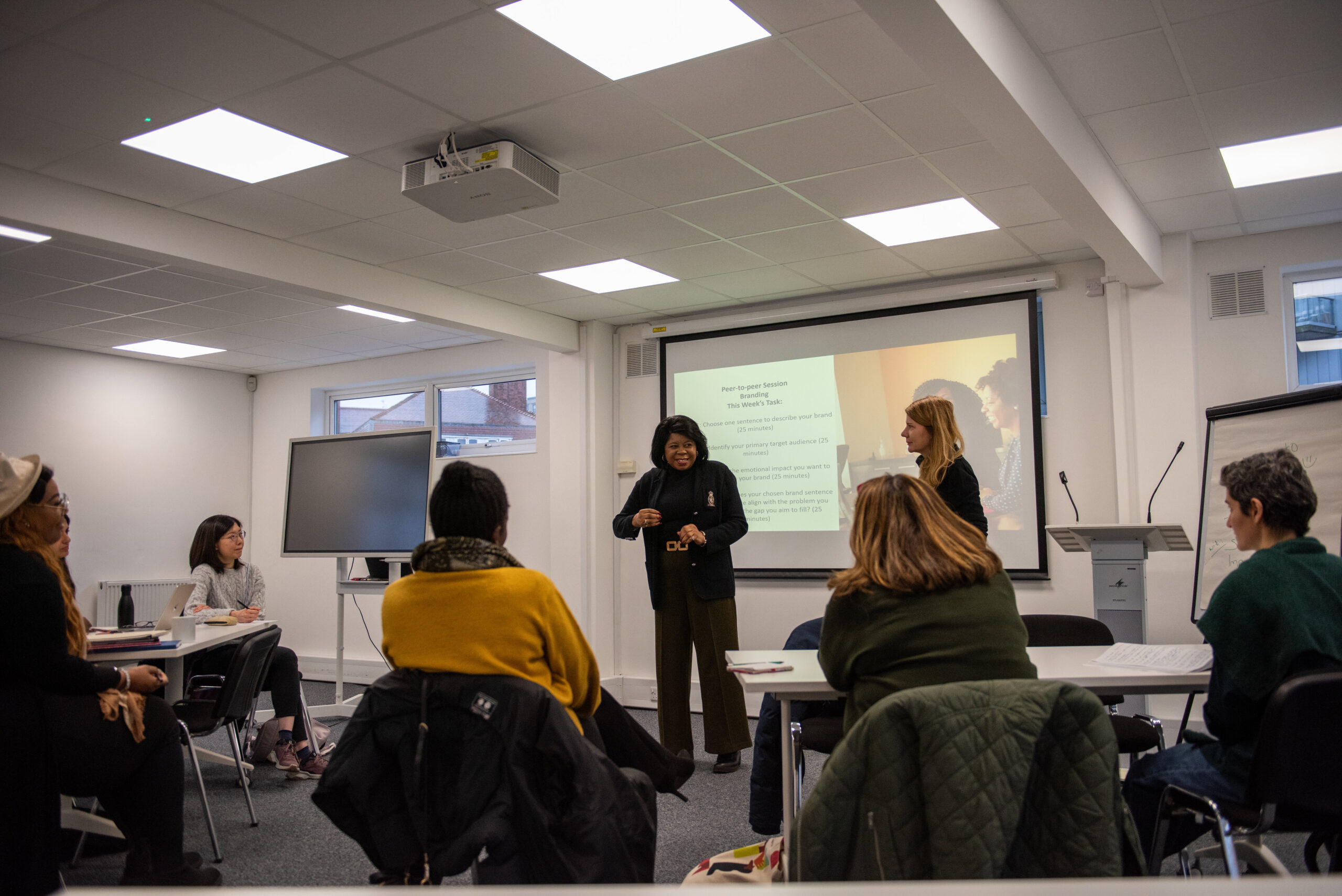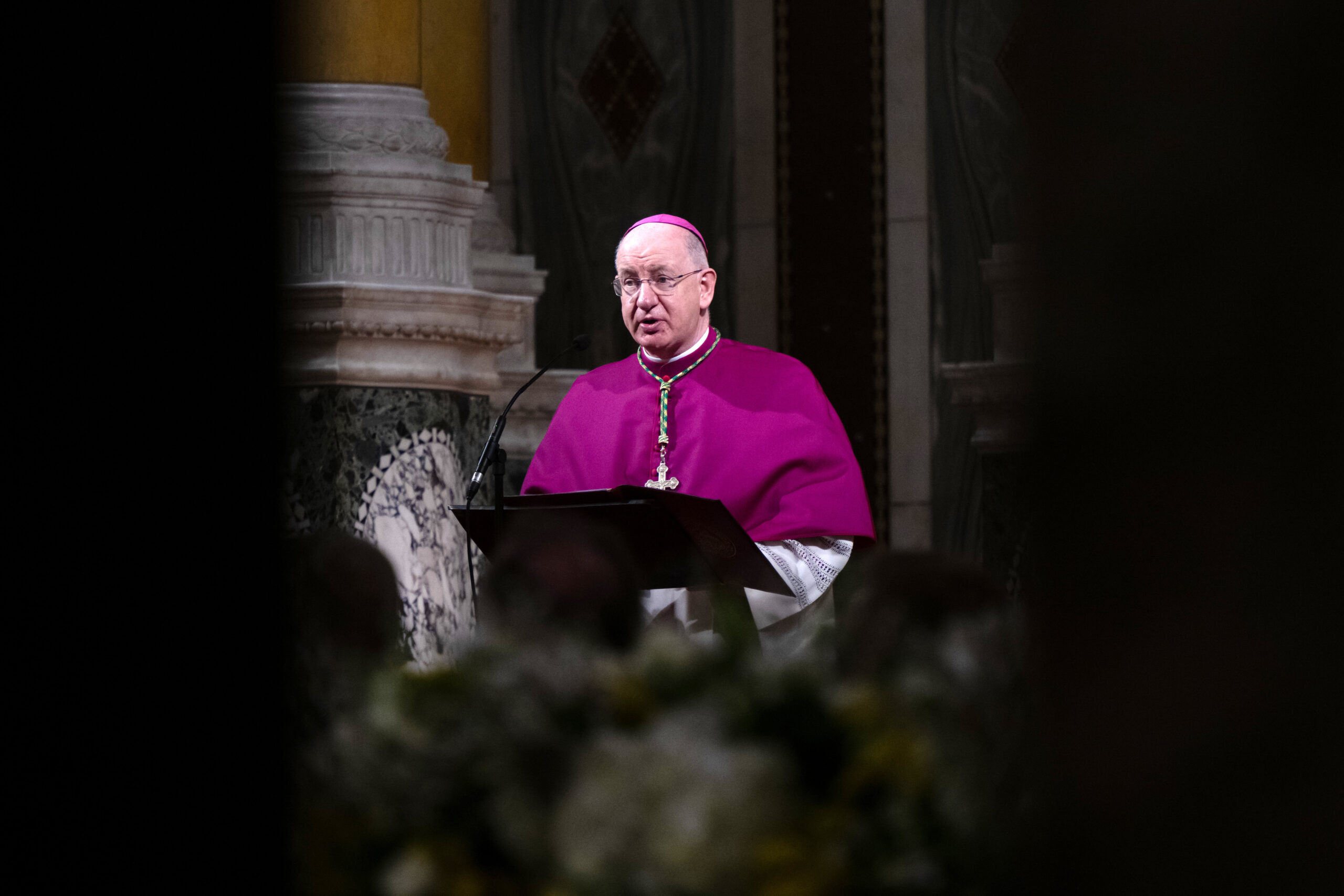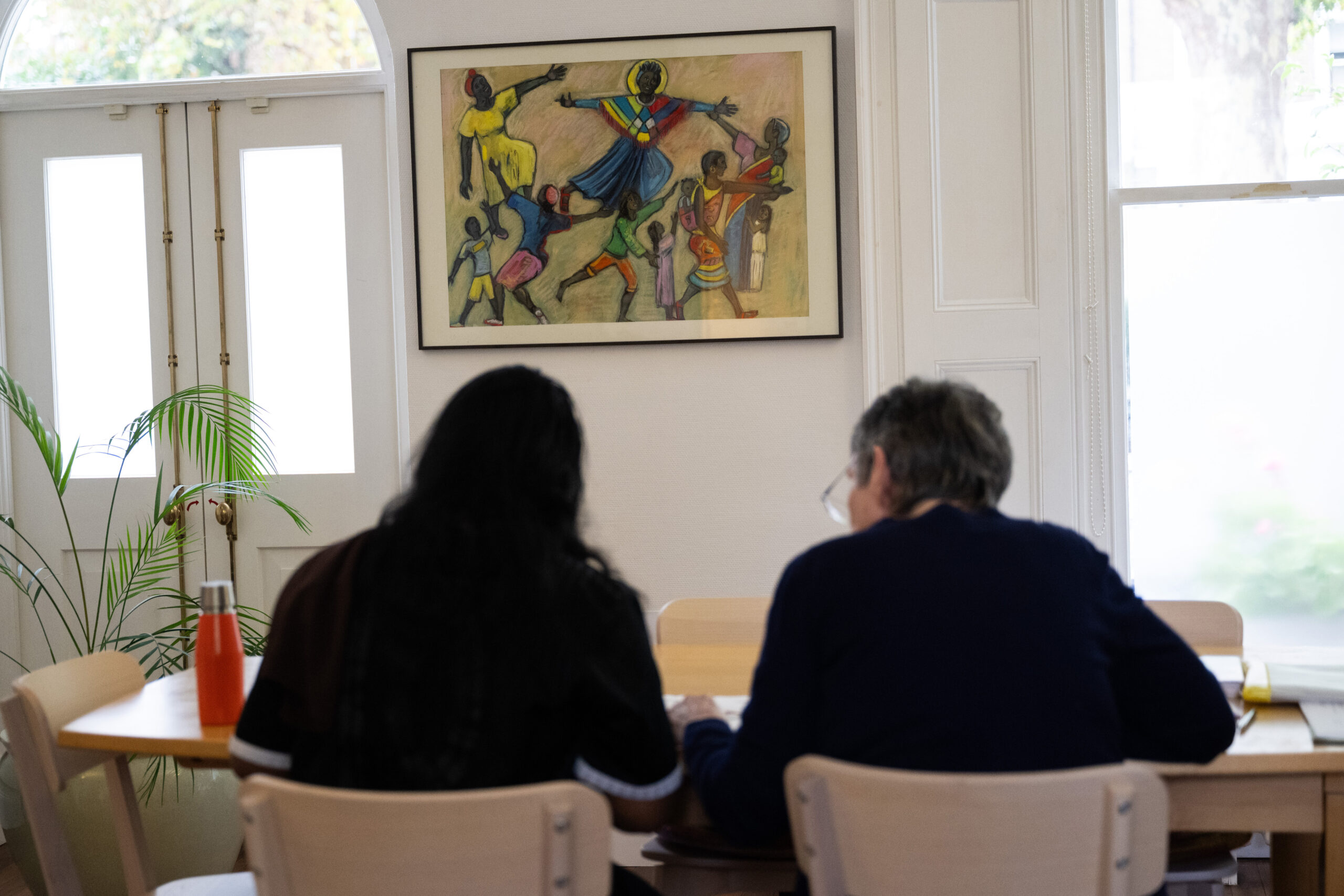by Ann Stirling
Frustration, love, hopelessness, community – these were some of the contrasting words used to describe the Calais Jungle by those who had been to the camp.

For Brother Johannes it was the shocking absence of law, absence of human rights and absence of children’s rights that most struck him. It was a place in the heart of modern day Europe where neither the State nor the police intervened, unless to their own advantage – an inconceivable horror.
Amongst the horror, it was also a place where people dared to dream of a better life, where communities formed and helped each other without boundaries. A place where across many cultures, countries and faiths, Eritreans, Christians, Muslims, Afghans sat around and ate together, danced around the fire, and hosted and shared with volunteers, a place where friendships formed.
The boundless hospitality of those living in the camp was something that Brother Johannes experienced immediately when he arrived in October 2015. Welcomed in by a Sudanese family, he was offered shelter in one of the huts they had built and was well looked after. Having arrived with the intention of distributing food and clothes, every time he tried to help, those living in the camp came to help him.
On the second day of living in the Jungle, he went to the camp’s church. ‘I didn’t know what to pray. I had never seen so much poverty in the West and I couldn’t get the words out’. In the meantime, all around him the church had started to fill with the faithful. ‘When I opened my eyes I didn’t see refugees, I saw people praying to the same God as I had, to the same Jesus Christ. I said these are my brothers and sisters.’ He knew then that God was calling him to be there for his brothers and sisters. He told us: ‘I wanted to be there with them.’
After moving to Maria Skobstova house, he and a small group of volunteers began work in a few core areas. As peacekeepers, they fostered and promoted community by bringing people together above nationality or religion. They sought out leaders and advocates for peace amongst those living in the Jungle, as well as creating interfaith activities. The volunteers also worked to build positive relations beyond the camp with those in the local Calais community. One such initiative with the L’Arche community saw strong bonds and friendships blossom.

Brother Johannes also created a field hospital and Jungle visiting team to seek out and support the most at risk, those suffering from physical and mental trauma, in the camp or in the hospital. When the French authorities razed the southern half of the camp to the ground in March 2016, the despair was so great that a group of Iranians sewed their lips together and went on a hunger strike. Brother Johannes took them into the house after 21 days to help them recover. One of those protesting was just 17 years old.
Once the French had completed their destruction of the Jungle in October 2016, there was no shelter for people; even small children had to sleep on the street. Yet it was obvious that the authorities would not manage to relocate the 10,000 camp inhabitants quickly. The refugees were also petrified at the prospect of being moved anywhere. Brother Johannes recalls how he and others had to walk traumatised and fearful people to the buses laid on by the authorities. Many were too frightened and simply walked away. Many children walked away too, their fate unknown.
Although the camp is no more, people have started to return. With no camp to go to, they remain in hiding from the police across Calais. Risking their lives every night for a dream called the UK, with them the painful poverty and lawlessness live on. Many of those coming back today are minors, young boys who are at great risk of becoming victims of traffickers – Brother Johannes is currently caring for two 14 year-old boys in the house who have travelled alone and have no family. Compassion and solidarity underpin the good work that still continues at Maria Skobstova house today and the house is a haven where the most vulnerable refugees have formed a community and live and pray together with volunteers.

Just a few hours before Brother Johannes’s talk, the Home Office announced that the UK would stop receiving children via the Dubs amendment by the end of March 2017. Additionally, the number of children to brought to the UK through the amendment would be capped at a mere 350. Brother Johannes’ fear is that this news will see a sharp rise in the number of children returning to Calais. For those children who were dispersed to centres across France in October, their only hope of reaching the UK was either through family reunification or the Dubs amendment. With legal avenues closing, Brother Johannes fears that many already desperate children will now see no other way out than to gamble their lives.
What can we do next? One of the ways that we can help is by reaching out and supporting refugees that are in the UK. Often the trauma that they have long supressed starts to surface only once they have arrived. Advocacy is also of key importance and Brother Johannes asked those present to raise consciousness in parish communities by getting people to talk about the ongoing problems and by changing hearts. Brother Johannes also called upon those who might wish to volunteer at Maria Skobstova house and help reach out those in need as a mother, father, brother and sister. Additionally, the ministry of Brother Johannes needs finances to grow, one of his wishes is to find more suitable accommodation to support more people in need, but as unable rent, financial support is vital.
‘Hope’, Brother Johannes reflects, ‘is the greatest lesson’ to be learnt from this for ‘when we embrace the cross with others – we cannot live without hope’. ‘In the midst of suffering we are still able to hope’.
‘Maybe where the horizon embraces the rail tracks,

My mother will be there waiting for me with a rose.
My father will invite me for a warm tea.
And my brother will play with me like we used to.
Until then, when mom’s flower will wait for me.
Dad’s tea will still be warm.
And I will play with my brother always….
I will walk.’
Part of a poem by Babak Inaloo, refugee and past volunteer at Maria Skobstova house.
Two videos shown by Brother Johannes during the evening are linked.
One of them, ‘The Bridge’, is filmed and directed by Babak Inaloo and Ali Haghooi, two Iranian refugees.
The second, ‘The Calais Jungle’ is a segment of a film made in conjunction with refugees of the Jungle and UNESCO.



